
Breakey, Hill, Morse, and Sipe to be Inducted into American Academy of Nursing
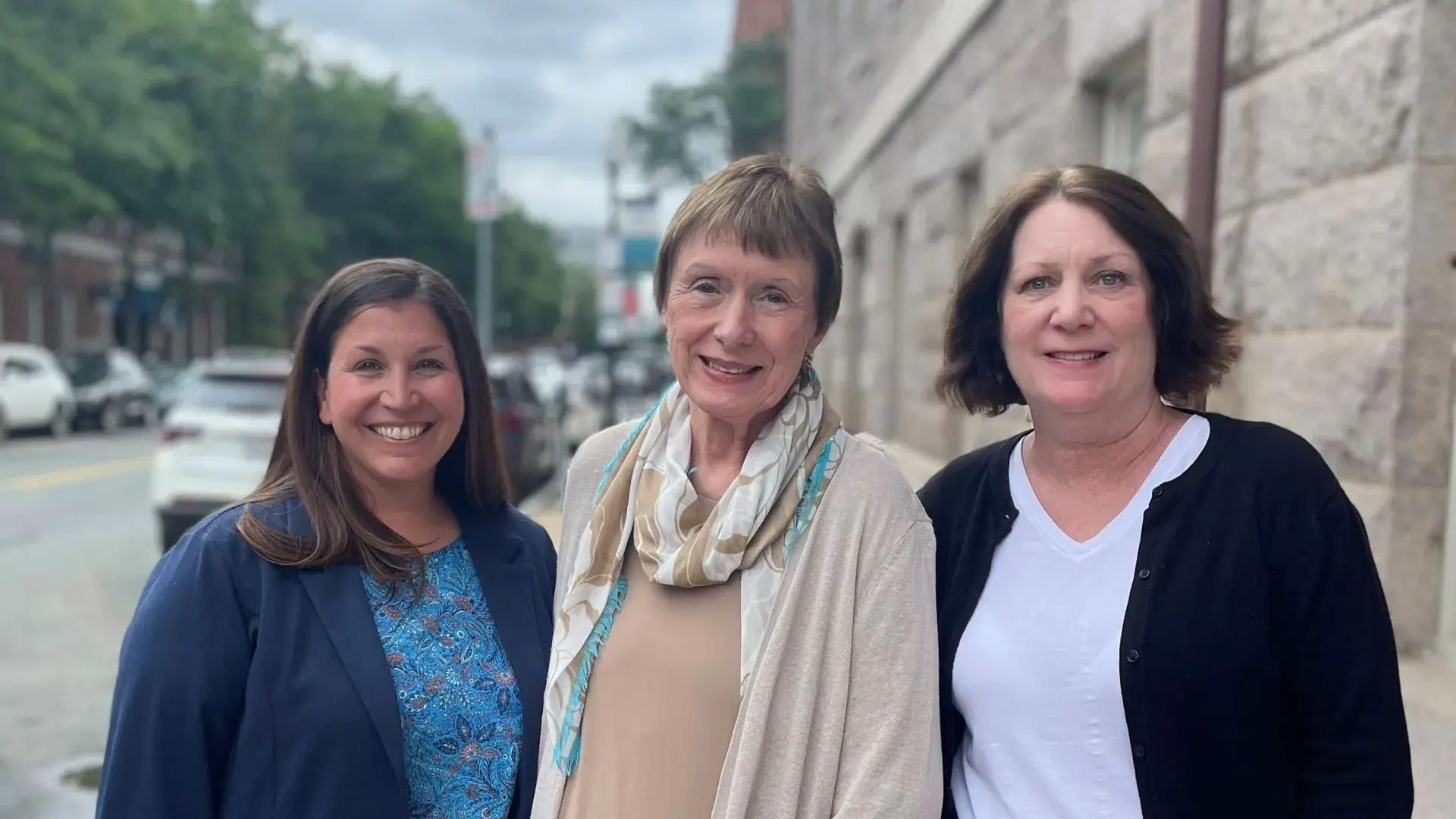
The four faculty inductees are more than any other organization in New England, and most ever for the MGH Institute in one year
It is the pinnacle of the nursing profession – to be named a Fellow in the American Academy of Nursing, the most prestigious nursing organization in the world. Not only does it speak volumes of one’s career and accomplishments, but also of one’s impact in healthcare.
Today, the Academy announced this year’s class of 253 inductees. This year, four MGH Institute of Health Professions faculty have climbed to the summit of nursing: Dr. Suellen Breakey, Dr. Rebecca Hill, Dr. Brenna Morse, and Dr. Margie Sipe – all will be inducted as Fellows of the American Academy of Nursing (AAN) at the Academy’s annual Health Policy Conference this October when it celebrates its 50th anniversary. No other school in New England had as many inductees as the IHP.
“It speaks to the caliber of faculty that we have,” said Dean of Nursing Dr. Kenneth R. White, who is also President of the American Academy of Nursing. “The fact that we have four this year underscores the contributions that our faculty are making.”
Breakey, Hill, Morse, and Sipe made the cut after a rigorous process that includes seven layers of evaluation before their submissions are even voted on. Their inclusion brings to 11 the number of IHP faculty members who are Fellows in the Academy.
“That our faculty have been selected shows that they are at the top level of nurses, not only in this country, but around the world,” said White. “It’s the top level of nurse leaders not just in academia, but in all aspects of nursing.”
Unlike selections based on productivity and awards, being named a Fellow is solely focused on a person’s tangible impact.
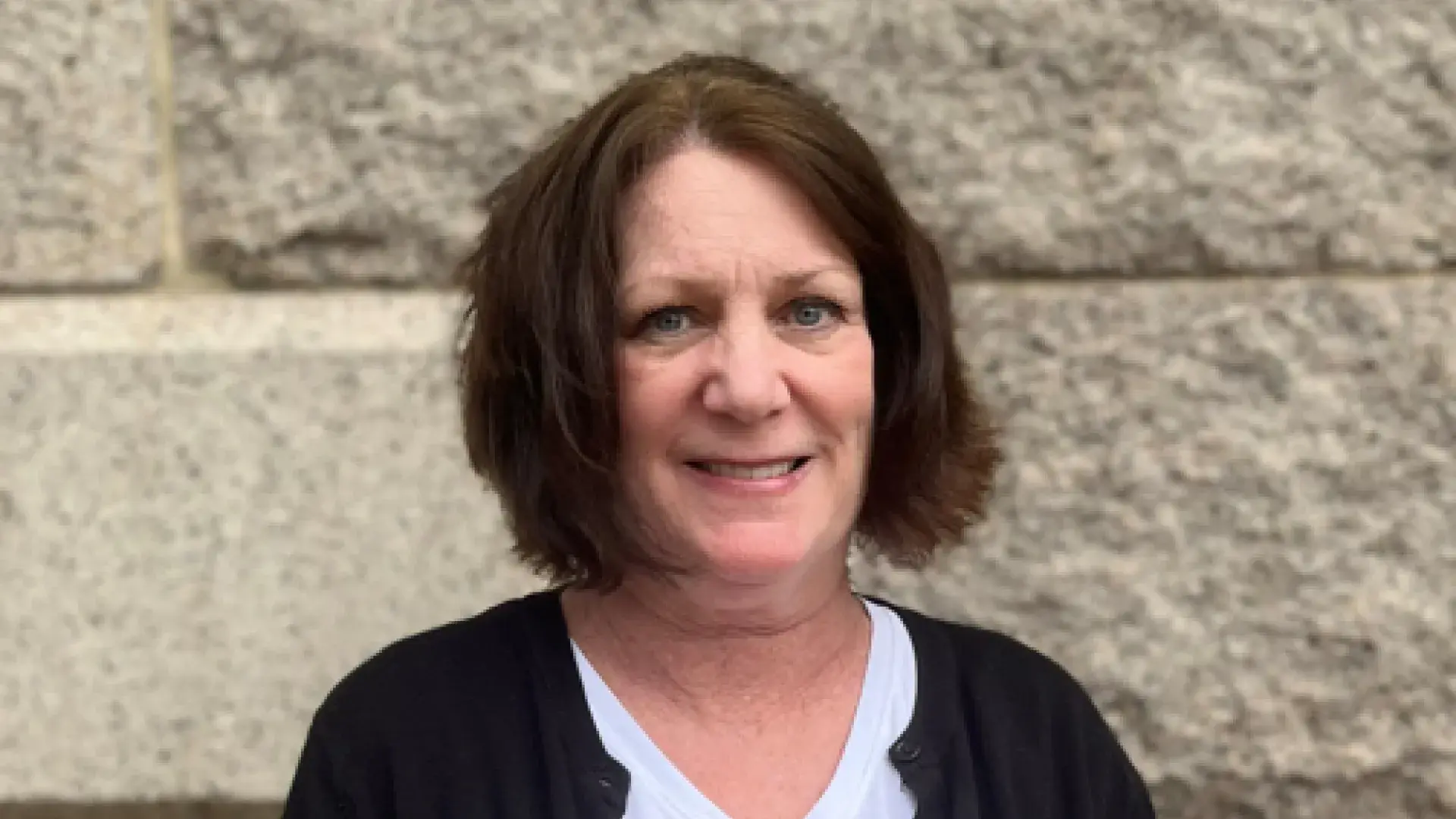
Suellen Breakey, PhD, RN
Breakey may be well-known around the IHP as a climate expert and the associate director of the Center for Climate Change, Climate Justice, and Health. But it was her extensive work in Rwanda as a nurse leader and educator for a nonprofit addressing rheumatic heart disease through screening, cardiac surgery, and education where she first made her mark, an experience that led to an interest in the health effects of global warming.
Breakey was working at Brigham and Women’s Hospital as the cardiac surgery program director with the chief of cardiac surgery. In 2007, they were told of Rwanda’s challenge with rheumatic heart disease, which is preventable with penicillin. With no access to heart surgery, young people were dying of end-stage heart failure because their valves were damaged by the disease.
“So, we got a team together, and we went over and started seeing our first patients,” remembers Breakey. “The goal was really to create a sustainable, comprehensive cardiac surgical program in the country, which was difficult because of their limited resources.”
Thus began Breakey’s annual three-week trips to the African country’s capital of Kigali. As the lead nurse and lead educator, Breakey educated patients and staff by creating patient education materials in the Rwandan language of Kinyarwanda that were critically important for a population new to what cardiac surgery was all about.
“In that material was what their operation was about and certain things both patients and providers needed to know,” said Breakey. “It serendipitously became a little communication tool between the hospital and the rural areas to which patients returned.”
Breakey also educated the medical staff.
“When I went there, I worked with local nurses and doctors to make sure education was based on their needs. So, I put together a couple of conferences with them that were attended by health professionals across the country.”
After a decade of making the 7,000-mile trek, Breakey turned her attention to the climate, an interest she began developing while writing a textbook, Global Health Nursing in the 21st Century, a few years earlier with IHP faculty colleague Dr. Patrice Nicholas.
“We were finishing up and getting ready to submit the proofs and I said we should probably put something about climate change in here and that was 2014,” recalls Breakey. “Neither of us were intimately familiar with climate change, but we developed a chapter, and that got us interested because we could see climate really does impact health.”
In 2017, the School of Nursing created the Center for Climate Change, Climate Justice, and Health with a vision of a “world where nurses and other health professionals lead in efforts to reduce climate change-related health consequences.” Since its inception, Breakey estimates the Center has educated about 10,000 people thanks to a combination of annual symposia, monthly webinars, and presentations to various hospitals, community centers, colleges, and even art galleries in Vermont.
“We have our tentacles in a lot of places,” observes Breakey. “It’s been busy but great – it’s what we need to do to—to educate people about climate change—to minimize or prevent the negative threats it can cause to health.”
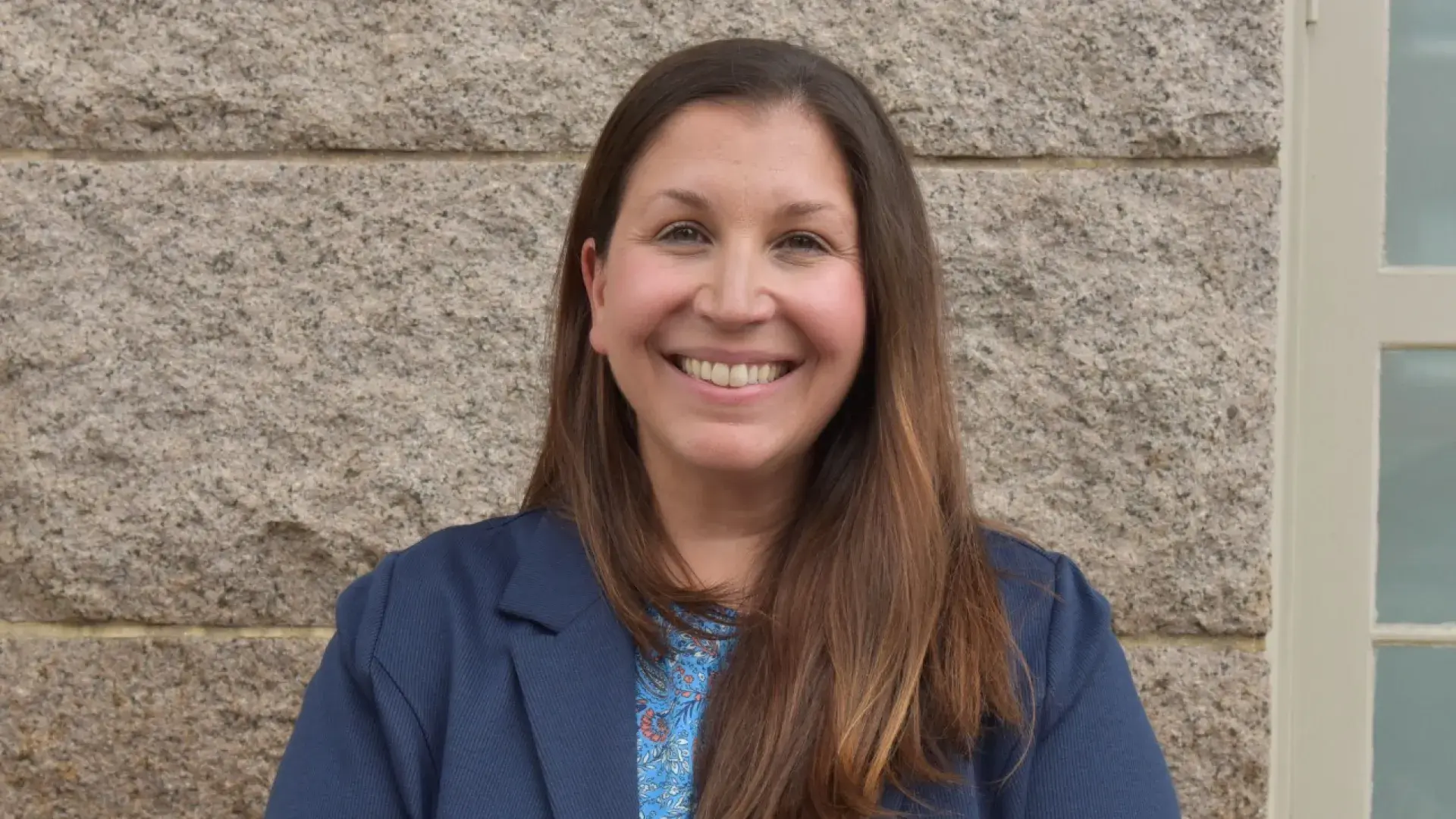
Rebecca Hill, PhD, DNP, FNP-C, CNE
Rebecca Hill always eyed being a Fellow in the American Academy of Nursing – it was one of her career goals – but she never thought it would happen so soon.
“I think the Academy is starting to recognize earlier career researchers to influence policy and to make big differences within the profession of nursing,” says Hill, who is Associate Dean of the Prelicensure program and a family nurse practitioner. “I am honored that they are recognizing my contributions.”
Hill’s major contribution is in tongue-tie research, an understudied issue that affects about 8% of all newborns. Tongue-tie, formally known as ankyloglossia, can cause issues with breastfeeding when a piece of tissue under the tongue doesn't let the tongue rise enough – this can lead to undernourished babies and stressed breastfeeding mothers. Hill’s research has identified a major gap in research and practice, one that affects maternal-infant bonding and may impede the known advantages of breastfeeding for both mother and child.
Hill discovered the issue when her own son had tongue-tie, yet no one diagnosed it until Hill herself researched the symptoms and put the pieces together. Hill began her PhD studies on the topic, committed to advancing the science on this under-recognized oral anomaly.
“The research is really just kicking off, but it has tremendous implications for health, well-being, and health equity,” says Hill. As an academic, I understand that the research and knowledge about this oral anomaly needs to be integrated into health professions curricula. “This is another area where I hope to make substantial, sustained impact.”
“Concurrently with that work, I collaborated with colleagues to develop a screening tool for gastrointestinal symptoms that has been adopted by feeding clinics. Development of that tool will help providers and parents better understand other symptoms their babies are having, whether it be from tongue-tie or from something else going on in the gastrointestinal tract. Are these symptoms normal or typical GI development? Or is there something going on necessitating referral or specialty support?”
In 2022, she was awarded a three-year, $30,000 grant from the Gerber Foundation to examine the issue. Only the second nurse to be funded by the foundation since its inception 20 years ago, Hill will be the first researcher to collect physiologic sucking data when babies are breastfeeding before and after treatment of tongue-tie.
“The culmination of that and being recognized by the Academy is signaling to me, and I hope it will signal to the general public, how important this topic is,” observes Hill.
Once inducted into the Academy, the mother of three won’t be wasting any time continuing to make an impact.
“There's a lot of work to do,” Hill says. “Two of the AAN’s expert panels, Breastfeeding and Maternal Infant Health, I intend to join and start contributing to health policy supporting breastfeeding parents and their babies.”
In the meantime, Hill can only marvel at the possibilities and at the recognition of her research.
“I look forward to the work ahead and making the Academy proud by doing all I can to advance research, inform practice, and promote the health and well-being of moms, babies, and families.” us at oscihp [at] mghihp.edu (ihposc[at]mghihp[dot]edu)
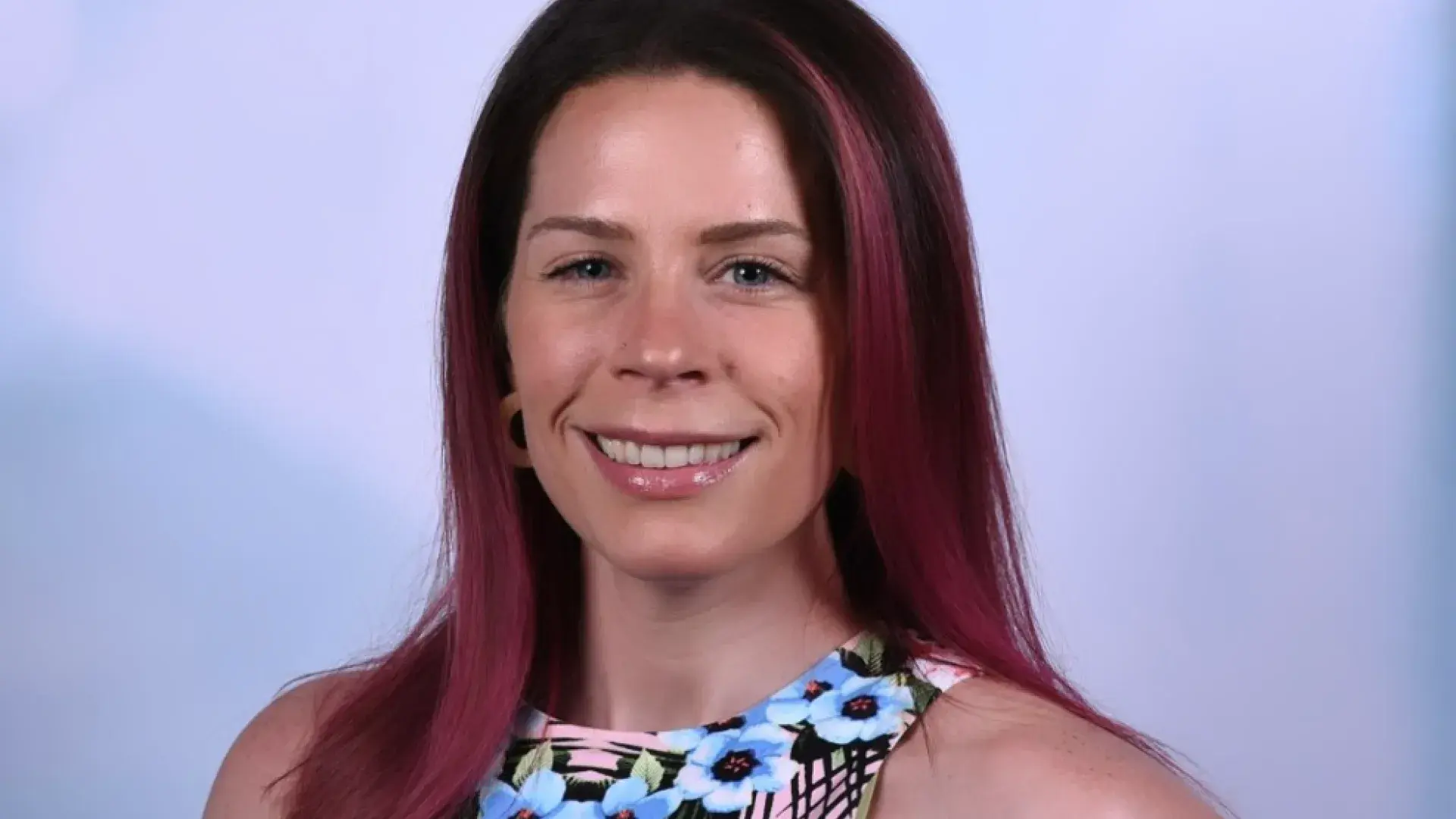
Brenna Morse, PhD, FNP-BC, NCSN, CNE, PMGT-BC, FNASN
An associate professor at the IHP since January, Morse’s contribution to nursing is in two areas: children with complex conditions who experience pain, and increasing the number of school nurses, and the diversity within.
She and her colleagues created tools to help clinicians detect where the pain might be in a child who has limited or no verbal abilities and complex conditions, such as profound developmental delays and requiring a ventilator.
“They can’t easily tell us that they're in pain,” says Morse, who most recently taught at UMass Lowell for seven years. “So, when they do go to seek care, they tend to be in the hospital for a long time - they get so many tests to only find that they have sources of pain that for other kids might be easily diagnosed in the pediatrician’s office like constipation or an ear infection.”
The tools remind clinicians to check common childhood sources of pain, to involve parents, and to do more of a systematic work up to avoid hospital admissions and further pain and trauma for the child.
“These children can’t easily tell us anything, and their caregivers can only tell us so much,” says Morse, a researcher and a nurse practitioner. “We know that pain is subjective – we have to tell someone we're having it. So, how do we make sure our evaluation is efficient and is going to find the source of pain quickly enough to make sure we can treat them so they’re not sitting there in pain, but also so it doesn't fester into something that needs surgery?”
School nursing is Morse’s other passion. As president of the National Board for Certification of School Nurses, Morse advanced health equity for schoolchildren by professionalizing and diversifying the school nurse workforce.
“I wanted to make sure that we could be more inclusive and welcoming,” says Morse, who analyzed and addressed findings of the organization’s national job analysis study, which exposed a lack of diversity among the workforce. “One result of work here was developing a strategic plan with an emphasis on creating a more inclusive and representative organization. We want to make sure that school nurses are empowered and able to get certified.”
In all, the AAN Induction is a validation or Morse’s body of work – and impact.
“A lot of academic work can be done quietly and some of these huge accomplishments that we think of become regular, like publishing a paper or getting a grant,” she says. “It’s wonderful to have a body of your expert peers look at your work and say it's made an impact. That’s huge.
“This induction opens up a lot of doors and provides a seat at tables to have conversations and network with other nurse leaders across the globe to further advance child health, my work, their work, and other important areas that are adjacent to what I do.”
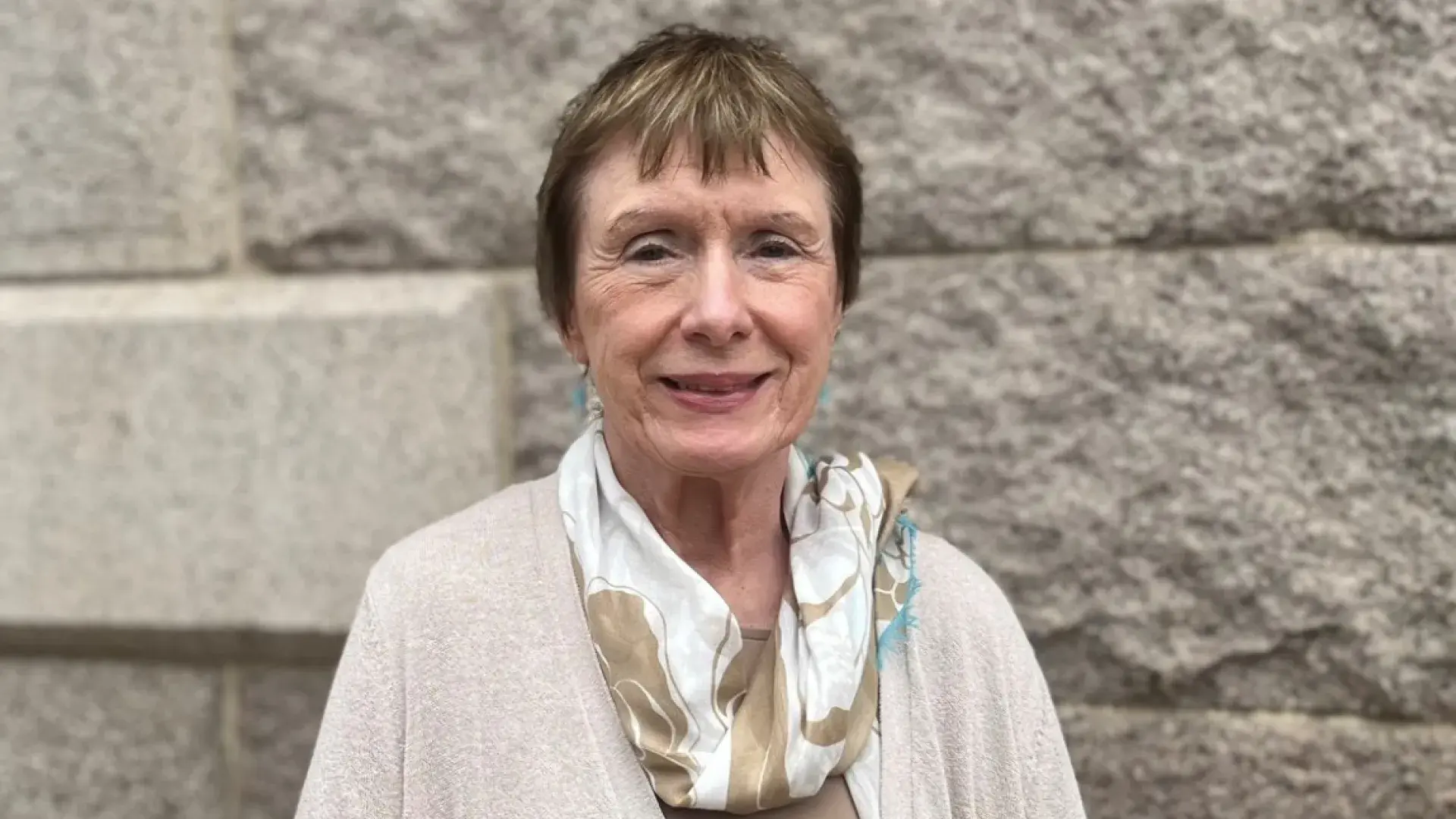
Margie Sipe, DNP, RN, NEA-BC, FNAP, FAON
Margie Sipe readily admits being inducted as a Fellow of the AAN was on her bucket list, and her reaction to learning of her selection was reflective of that.
“I screamed,” recalls Sipe. “(Dean White) called me on my mobile phone and said, ‘Have you looked at your email? Stop what you're doing and look at your email.’ And then I saw the selection. After I screamed, I had tears. It’s very emotional and a huge honor. I've had so many people rooting for me. And it’s very special for me to do this when Ken is president of the Academy.”
Medication safety and mentoring are the two main points of influence for Sipe, who has been at the IHP for ten years and now leads the Doctor of Nursing Practice program.
Before she became a mentor to many, Sipe made an impact in performance improvement and quality safety initiatives. Her doctoral work involved not only using technology but focusing on the question of: how does the nurse engage the patient along with the technology to bring that to play.
“We have wonderful computer systems today, but errors still happen because sometimes we forget to ask the patient,” cautions Sipe. “If you looked at your own medical record, you probably will find errors there, and those errors get carried through one time after another. We just need to spend a few minutes talking to the patient. Clinicians feel they can't, because they lack the time to do so, but if they did, we could prevent a lot of things.”
Sipe’s work in this area began in the early 2000s in the wake of a national report detailing the medication errors that were occurring in the United States. That’s when Sipe, who is a big fan of technology, began efforts to help organizations improve medication management.
“I helped bring up bar code medication administration systems early on in institutions and then got very involved in helping to develop tools that organizations could use to help assess where they were at and really monitor their outcomes of medication distribution,” said Sipe.
While working with the Institute for Safe Medication Practices, Sipe and her colleagues developed guidelines for safe use of automated medication dispensing units. The importance of this work came to light in 2007 when the newborn twins of actor Dennis Quaid almost died at Cedars-Sinai Medical Center in Los Angeles after being given too much of the blood thinner Heparin. The medical mishap had the twins fighting for their lives.
“I had some involvement with helping that organization to redesign its system,” recalls Sipe. “It's all quality improvement with a focus. These days, people kind of sit back and say, ‘Everything is good – we have great technology.’ But guess what? We still have errors.” This work and her sustaining contribution to nursing leadership was recognized when she was inducted as an inaugural Fellow in the American Organization for Nursing Leadership (AONL) in 2019.
Mentoring has been the shoe Sipe has worn through the years, and it’s given her the most pride.
“I just love helping people be the best versions of themselves and connecting people and really helping them figure out what they need to do to get in touch with being a leader, really embracing that, and taking the steps to really boldly lead,” says Sipe with a smile.
“My greatest pride is when you see someone you've had the chance to influence go on beyond your wildest imagination,” she says. “Mentoring is very much a two-way street. I think the person who mentors gains as much as the person being mentored. And that reciprocal relationship is just very, very uplifting.”
Do you have a story the Office of Strategic Communications should know about? If so, email ihposc [at] mghihp.edu (ihposc[at]mghihp[dot]edu).